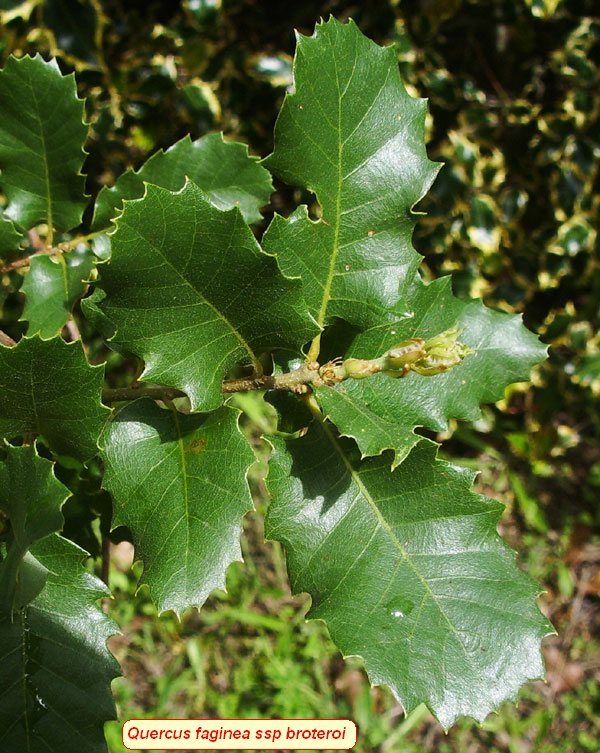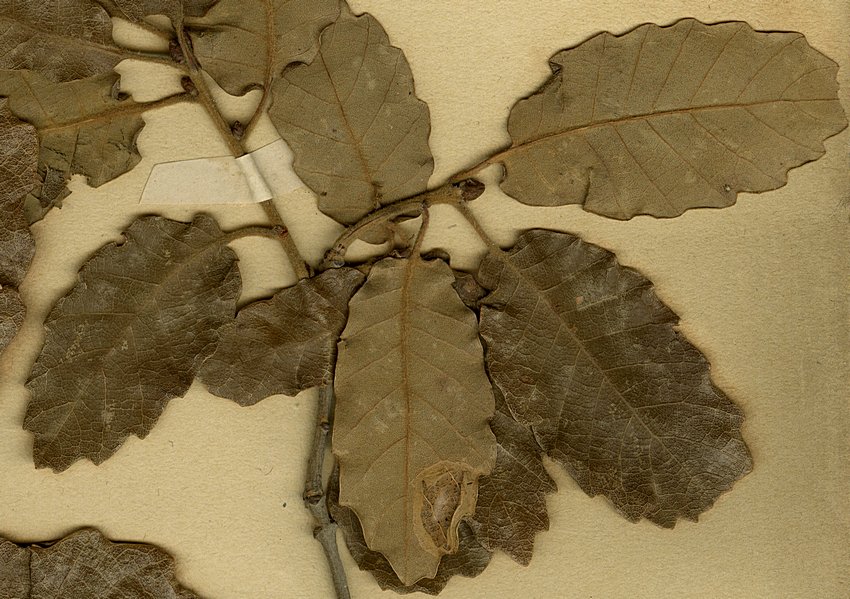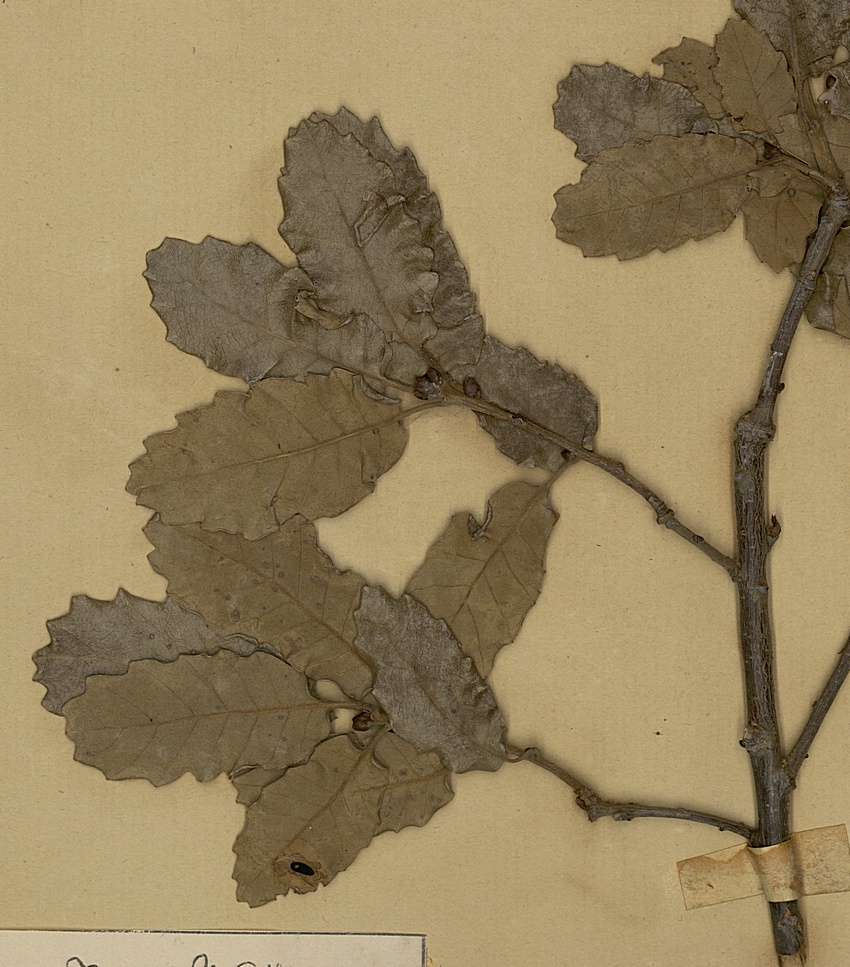| Quercus x tlemcenensis | |
| Author | Trab. in Battandier & Trabut 1905 Fl. Algerie Tunisie: 308. |
| Synonyms | mirbeckii f. tlemcenensis (A.DC)
Trab. 1890 faginea var. tlemcenensis (A.DC) Jahand. & Maire 1932 broteroi (Cout.) Rivas-Martínez & C. Saénz subsp. tlemcenesis (DC.) F.M. Vázquez & A. Coombes (2016: 29) faginea subsp. broteroi (Cout.) var. tlemcenensis (A.DC.) A. Camus (1939: 180) x maroccana (Braun-Blanq. & Maire) Villar (1943: 3) tlemcenensis (A.DC.) Villar f. maroccana (Braun-Blanq. & Maire) Villar (1938: 453) x fagineomirbeckii Villar (1938 450) x jahandiezii A. Camus (1939: 791) x marianica C. Vicioso (1950: 129) x pseudofaginea A.Camus (1939: 792) faginea subsp. tlemcenensis (A.DC.) Maire & Weiller ex Greuter & Burdet 1982 canariensis X faginea |
| Local names | |
| Range | South of Iberian Peninsula |
| Growth habit | rather tall tree; |
| Leaves |
4-8 cm x 2-4.5; subevergreen; more or less leathery; oval-oblong or subelliptical; flat; apex rounded; base slightly attenuate, rounded or cordate; adaxially pubescent; abaxially whitish tomentose (stellate trichomes with 200-250 microns long rays, slightly curved; margin dentate (often almost crenate), sometimes with mucro; 8-12 vein pairs, slightly sinuous as for the midvein near apex; no (or very few) tertiary veins; petiole half-cylindrical, 5-14 mm long; |
| Flowers |
female inflorescences racemose, 1-4 cm long, densely stellate, white tomentose; perianth with 6 lobes pubescent ; 3 spatulate stigmas. |
| Fruits | acorn 2.5-3 cm long, with stylopodium pubescent; basal scar convex; cup 1 cm high x 1.5 cm wide, with convex, pointed, silky scales; |
|
Bark, twigs and |
twig grey tomentose; buds ovoid-conical, tomentose; stipules straight, hairy, deciduous; |
| Hardiness zone, habitat | |
| Miscellaneous |
-- A. Camus : tome 2, p. 179 (under the name Q. faginea
subsp broteroi) -- For todays' Spanish and Portuguese Authors (F. Vázquez and C. Vila-Viçosa 2021) this taxon is actually (following Battandier & Trabut 1905) the hybrid between Q. faginea and Q. canariensis.
|
| Subspecies and varieties |
|
| Pictures |
More pictures HERE
|


